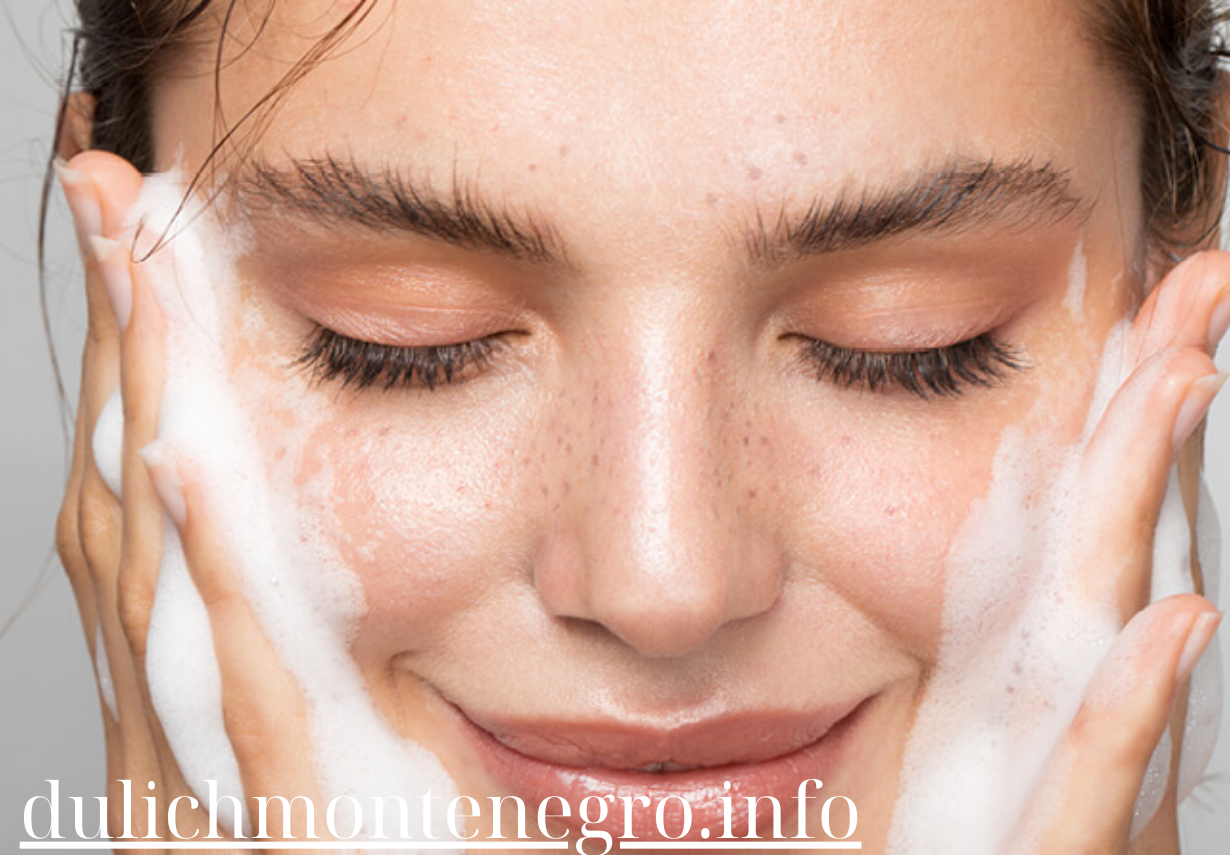Caring for sensitive skin can be challenging due to its tendency to react to common skincare ingredients, environmental factors, and stress. Sensitive skin requires special attention to prevent irritation, inflammation, and discomfort while maintaining its health and resilience. This comprehensive guide offers effective tips and product recommendations for nurturing and protecting delicate skin, ensuring that it stays healthy, hydrated, and balanced.
1. Understanding Sensitive Skin
a. What Is Sensitive Skin?
Sensitive skin is characterized by heightened reactivity to certain environmental factors, skincare ingredients, or physical contact. Common symptoms include redness, dryness, irritation, and a burning or stinging sensation. People with sensitive skin often struggle with conditions like eczema, rosacea, and contact dermatitis.
b. Causes of Sensitivity
Sensitive skin can be caused by a variety of factors:
- Genetics: Some individuals are genetically predisposed to sensitive skin.
- Environmental Factors: Sun exposure, pollution, harsh weather, and extreme temperatures can exacerbate sensitivity.
- Product Irritants: Harsh chemicals, fragrances, alcohol, and certain preservatives in skincare products can trigger reactions.
2. Gentle Cleansing Routine
a. Choose a Mild, Non-Irritating Cleanser
The right cleanser is crucial for sensitive skin. Harsh soaps or cleansers with sulfates can strip the skin of its natural oils, leading to dryness and irritation. Opt for a gentle, sulfate-free cleanser that maintains the skin’s moisture barrier while removing dirt and impurities.
- Recommended Ingredients: Look for calming ingredients such as aloe vera, chamomile, glycerin, and oat extract, which help soothe and hydrate sensitive skin.
b. Use Lukewarm Water
Hot water can strip the skin’s natural oils and worsen sensitivity. Always cleanse your face with lukewarm water to avoid drying out your skin and triggering redness.
c. Limit Cleansing to Twice a Day
Over-cleansing can disrupt your skin’s natural balance. Cleanse your skin in the morning and evening, and avoid scrubbing aggressively, which can further irritate delicate skin.
3. Moisturize for Barrier Protection
a. Choose a Hypoallergenic Moisturizer
Moisturizing is essential for maintaining the skin’s barrier function, which is crucial for sensitive skin. A damaged barrier can lead to increased moisture loss and make the skin more vulnerable to irritants.
- Look for: Fragrance-free, hypoallergenic, and non-comedogenic moisturizers with soothing ingredients like ceramides, shea butter, and hyaluronic acid.
b. Layer Moisturizers for Extra Hydration
If your skin feels especially dry or tight, consider layering products for added hydration. Start with a hydrating serum or essence, then apply a lightweight moisturizer to seal in moisture.
- Tip: Avoid heavy creams that may clog pores. Instead, choose lighter formulations that are easily absorbed by the skin.
4. Sun Protection is Essential
a. Use a Mineral Sunscreen
Sun exposure is a major irritant for sensitive skin. Physical (mineral) sunscreens, which contain zinc oxide or titanium dioxide, are better suited for sensitive skin than chemical sunscreens, as they sit on top of the skin and reflect UV rays without causing irritation.
- Look for: Broad-spectrum SPF 30 or higher to protect against both UVA and UVB rays.
b. Reapply Sunscreen Regularly
Reapply sunscreen every two hours when exposed to the sun, especially if you are sweating or swimming. Even on cloudy days, UV rays can penetrate the skin and cause damage.
5. Incorporate Calming and Soothing Ingredients
a. Anti-Inflammatory Ingredients
Sensitive skin benefits from ingredients that reduce inflammation and calm redness. These soothing components help to prevent flare-ups and maintain a balanced complexion.
- Best Ingredients for Sensitive Skin: Aloe vera, chamomile, calendula, oat extract, niacinamide (vitamin B3), and allantoin are known for their soothing, anti-inflammatory properties.
b. Avoid Common Irritants
Fragrances, alcohol, and synthetic dyes are common triggers for sensitive skin. Always choose fragrance-free products and avoid ingredients like menthol, camphor, and essential oils, which can cause irritation.
6. Patch Test New Products
a. Why Patch Testing is Important
Sensitive skin can react unpredictably to new products. To prevent a full-face reaction, patch test any new skincare product on a small area of skin (such as behind your ear or on your inner forearm) before using it regularly.
b. How to Patch Test
Apply a small amount of the product to the test area and wait 24-48 hours to check for any signs of irritation, redness, or allergic reactions. If the product causes no reaction, it’s likely safe to incorporate into your routine.
7. Treating Flare-Ups and Irritation
a. Soothe Irritated Skin
When your skin flares up, focus on calming it down with simple, soothing treatments. Avoid exfoliants or active ingredients like retinol or AHAs/BHAs during flare-ups, as these can further irritate the skin.
- Soothe with: Cold compresses or calming sheet masks containing aloe vera, cucumber, or green tea extract.
b. Use Hydrocortisone for Severe Reactions
For more severe flare-ups, a 1% hydrocortisone cream can help reduce inflammation and itching. Use sparingly and consult a dermatologist if reactions persist or worsen.
8. Incorporating Active Ingredients Safely
a. Introduce Retinol Gradually
While retinol is an excellent anti-aging ingredient, it can be harsh on sensitive skin. If you want to incorporate retinol into your routine, start with a low concentration (0.25% or lower) and apply it once or twice a week, gradually increasing frequency as your skin builds tolerance.
- Tip: Apply retinol over a moisturizer to create a buffer, which can minimize irritation.
b. Use Gentle Exfoliants
Sensitive skin benefits from exfoliation to remove dead skin cells, but harsh scrubs can cause micro-tears and irritation. Opt for mild chemical exfoliants like lactic acid or polyhydroxy acids (PHAs), which are gentler alternatives to glycolic acid and salicylic acid.
- How to Use: Exfoliate no more than once a week and always follow with a soothing moisturizer.
9. Adapt to Seasonal Changes
a. Winter Care
Cold weather and indoor heating can strip your skin of moisture, making it prone to dryness and irritation. In winter, switch to richer, more emollient moisturizers to protect your skin’s barrier.
b. Summer Care
In warmer months, opt for lightweight, non-comedogenic moisturizers and keep your skincare routine simple to prevent clogged pores and heat-induced irritation. Sunscreen becomes even more essential during summer, so reapply regularly and wear protective clothing when possible.
10. Consult a Dermatologist
a. Seek Professional Advice for Severe Sensitivity
If your skin is persistently sensitive or you experience frequent flare-ups, it’s important to consult a dermatologist. They can help diagnose any underlying conditions (such as eczema or rosacea) and recommend tailored treatments that suit your skin’s specific needs.
Conclusion
Caring for sensitive skin requires a mindful and gentle approach, focusing on soothing, hydrating, and protecting your skin from irritants. By choosing the right products, incorporating calming ingredients, and making lifestyle adjustments, you can keep your delicate skin healthy, balanced, and glowing. Tailor your routine to your skin’s needs, and always prioritize hydration, sun protection, and a patch-testing regimen when introducing new products. With consistent care, sensitive skin can thrive and maintain its natural beauty.



